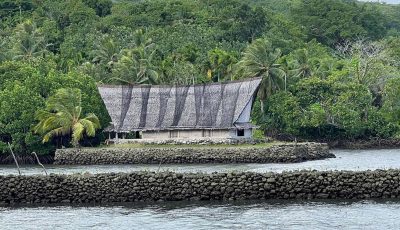$500K available to US territories to replace diesel engines
HONOLULU—The U.S. Environmental Protection Agency has announced the availability of grant funding available to U.S. territory and tribal governments, to implement projects aimed at reducing emissions from the nation’s existing fleet of older diesel engines. Older diesel engines emit large amounts of NOx and PM2.5, which contribute to serious public health problems, including asthma, lung disease and various other cardiac and respiratory diseases
“Far too often, people living on tribal lands and insular areas are overburdened by pollution from aging vehicles and engines,” said EPA acting assistant administrator for Air and Radiation Joseph Goffman. “These grants target the specific needs of tribes and insular areas to update their fleets with cleaner equipment that will reduce harmful diesel exhaust in their communities.”
A total of $4.5 million will be made available to tribal governments, or intertribal consortia, and Alaska Native villages; and $500,000 will be made available to insular area governments including the U.S. Virgin Islands, Guam, American Samoa, and the CNMI. EPA anticipates awarding five to 10 cooperative agreements to tribal governments, intertribal consortia, or Alaska Native villages; and two to four cooperative agreements to insular area governments. Matching funds are not required for eligibility.
Nearly 10 million legacy diesel engines are in use in the United States. Problems that result from these engines include thousands of premature deaths, millions of lost workdays, and numerous other negative health impacts every year. The Diesel Emissions Reduction Act program prioritizes projects in areas that face the most challenging air quality issues, especially those that benefit underserved communities or populations that have faced or are facing environmental health or environmental justice disparities.
Since the inaugural year of funding for DERA in 2008, EPA has awarded over $830 million on 850 grant projects and 450 rebate projects to reduce diesel emissions nationwide. Many of these projects funded cleaner engines that operate in overburdened communities whose residents suffer from higher-than-average instances of asthma, heart, and lung disease.
Application packages must be submitted electronically to EPA through Grants.gov to be considered for funding. Although funding for both tribes and insular areas is being announced under this single RFA, the applications will be reviewed separately. Three informational webinars to accommodate diverse time zones will take place on May 12, May 18, and May 20, 2021, for interested applicants. EPA anticipates sending notification of awards in August 2021. (PR)



























